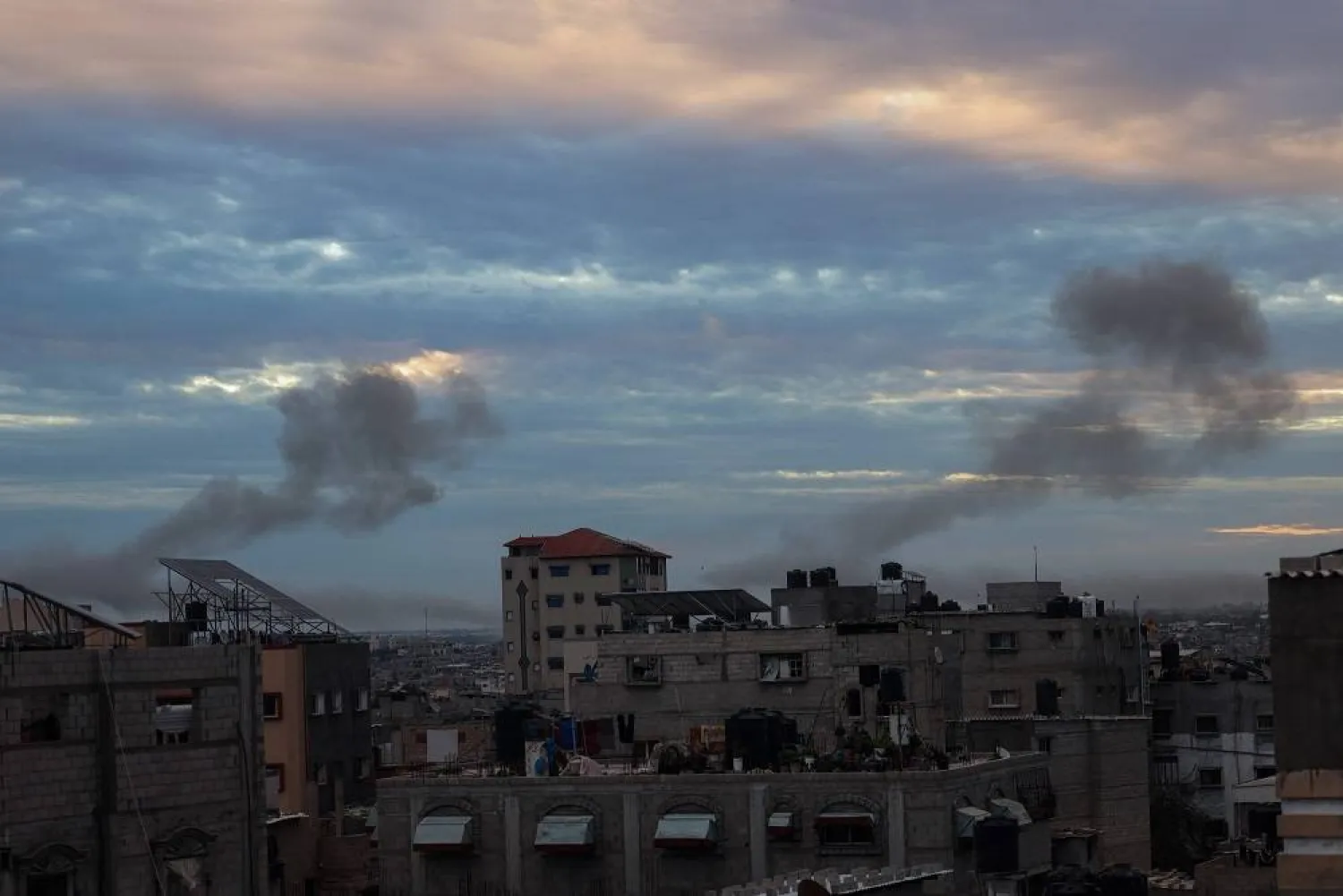The UN Security Council held an emergency closed meeting on the escalating civilian death toll in Gaza and Israel’s plans to move its offensive to Rafah where some 1.5 million Palestinians have fled hoping to find safety.
China’s UN Ambassador Zhang Jun told The Associated Press after Monday’s late meeting that there was “a loud cry” among council members about the need for urgent action -- to deal with the “unfolding humanitarian catastrophe,” Israel’s announced intentions in Gaza, and further spillover of the war.
Algeria, the Arab representative on the 15-member Security Council who called the meeting, has circulated a draft resolution calling for an immediate ceasefire in the war that began after Hamas invaded Israel on Oct. 7, killing about 1,200 people and taking some 250 hostage.
More than 28,000 Palestinians have been killed during Israel’s offensive, according to the Health Ministry in Hamas-run Gaza.
Zhang said the “very strong and overwhelming position of council members” is for the Security Council to act but one member – a clear reference to Israel’s closest ally the United States – “worries about the complication of Security Council action with the bilateral efforts” it is undertaking.
The Chinese envoy said discussions on the Algerian draft resolution are still taking place, and he expressed hope “that eventually the council will be demonstrating our united position.”
No safe place to go
The UN said it will not participate in the forced displacement of Palestinians in Gaza, stressing that there is no safe place to go in the territory where Israel is still carrying out a military offensive.
UN spokesperson Stephane Dujarric was responding to Israeli Prime Minister Benjamin Netanyahu’s request to the military to prepare a plan to evacuate the Palestinian civilians who have fled to southern Rafah to seek safety in order to continue its operation against Hamas – and a report that the UN was asked to help in the evacuations.
Dujarric said the vast majority of Palestinians in the south can’t be sent back to northern and central areas littered with unexploded ordnance and destroyed housing, and where the humanitarian situation is exceedingly challenging with very few supplies of food and other necessities.
He added that “the deconfliction process that we have in place with the Israeli authorities is also not working.”
Israeli government spokesperson Eylon Levy, speaking Monday, accused UN agencies of being more concerned about pressuring Israel to end its war with Hamas and resisting “our efforts to vacate civilians from Hamas strongholds, libelously characterizing those measures in pursuance of our obligations under international law as forced displacement” than helping protect civilians.
“We urge UN agencies to cooperate with Israel’s efforts to protect civilians from Hamas and evacuate them from a war zone where terrorists are trying to use them as human shields,” Levy said. “Don’t say it can’t be done. Work with us to find a way.”
Pressed later by The Associated Press on whether Israel was seeking UN help, he appeared to backtrack, saying Israel was not asking for help to evacuate Rafah, “We are asking the UN to work towards helping protect Palestinian civilians rather than helping Hamas.”
Dujarric stressed that “there is no place that is currently safe in Gaza” and the United Nations wants to ensure “that anything that happens is done in full respect of international law, in full respect of the protection of civilians.”
“We will not be party to forced displacement of people,” he said.
‘Terrifying’ effects
Meanwhile, the UN human rights chief said a potential full-fledged Israeli military incursion into Gaza is “terrifying” because some 1.5 million Palestinians have nowhere else to flee and “an extremely high number” of civilians are likely to be killed and injured.
Volker Türk said in a statement Monday that “given the carnage wrought so far in Gaza it is wholly imaginable what would lie ahead in Rafah.”
“Beyond the pain and suffering of the bombs and bullets, this incursion into Rafah may also mean the end of the meager humanitarian aid that has been entering and distributed with huge implications for all of Gaza,” he said, “including the hundreds of thousands at grave risk of starvation and famine in the north.”
Türk urged the world not to allow this to happen, reiterating UN calls for an immediate ceasefire, the release of all hostages taken during Hamas’ attacks on Oct. 7, and “renewed collective resolve to reach a political solution.”
Türk said he has repeatedly warned against actions violating the laws of war, and he warned again that the prospect of an Israeli military operation in Rafah “as circumstances stand, risks further atrocity crimes.”









